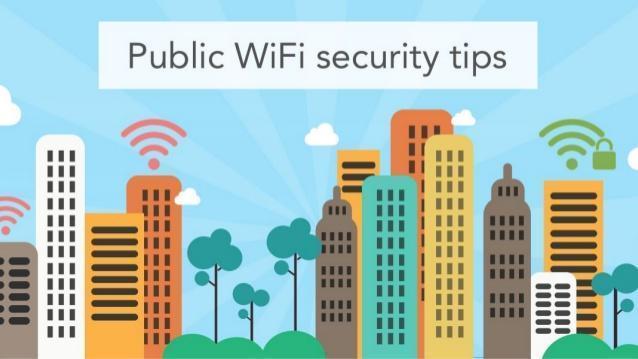 Private owned businesses, health service centers, airports, libraries, schools, and many other places are beginning to offer free wi-fi service in their respective locations.
Private owned businesses, health service centers, airports, libraries, schools, and many other places are beginning to offer free wi-fi service in their respective locations.
For business owners like Starbucks and many others, getting customers requires more than just offering good coffee. It is also about giving incentives which is why more business, as shown here, are offering free wi-fi as a way of attracting people to patronize their core business.
This is great as you do not need to spend heavily on subscriptions or opt for data-saving apps that restrict your access to exciting features.
However, using this convenience is not without its disadvantages. Because of it’s open nature that allows all kinds of persons access, what you are enjoying for free may end up costing you more than you may ever have spent on internet subscriptions.
Hackers have been known to take undue advantage of these open networks to harvest sensitive information from other unsuspecting network users.
So, what exactly does this mean for you?
Should you simply avoid the use of free wi-fi service in these places? Well, not exactly.
In this article, we will discuss safety tips to protect you when using these services. This means that you can enjoy these public wii-fi services but without worrying so much about your safety.
But first, let us take a quick look at Wi-Fi.
What Is Wi-Fi?
It is hard to think some people do not know what wi-fi is because of how common and frequently used the word is. However, we will not take things for granted so we will briefly explain what it is.
Wi-fi is a networking system that is wireless. It allows various devices to connect to an access point from where access to the internet is granted. On a public wi-fi, everyone on the network has access the other person’s device if they have some technical know-how.
If you need a more detailed, you can visit: https://en.wikipedia.org/wiki/Wi-Fi
There are several wi-fi options available. These options are mostly tied to the device used as an access point for wireless transmission. Let us take a look at some major options available.
Router
These options are mostly used in homes and personal environment. This is because of the portability they offer.
The router is a hardware part that the internet service provider uses to connect users to their internet service or cable. Because of its structure and function, it is commonly known as a WLAN device.
Desktop Router
Desktop routers are common devices in many workplaces that use internet services. One of the reasons is because of the option of using range extenders.
Range extenders allow smooth internet connectivity even in sections that are supposed to have weak or no connectivity. As a result, instead of having another access point installed, range extenders can be placed in strategic places to boost internet access all over the work environment or location.
Mobile Hotspot
As suggested by the term “mobile”, you can guess it is a mobile phone compatible option. This option allows other smartphone users to have untethered or tethered internet access.
By switching on the smartphone’s hotspot while the internet service is running, other mobile devices and PCs can get connected. If the mobile hotspot service is not passworded, any mobile or compatible device can tap into the internet connection. However, if it is password protected, there will be a need to know and input the password.
As with many other wi-fi options, the access point can be set to have a limited number of users. For instance, if it is set at 10 users, the 11th device that attempts to get connected will find it impossible. This is because of the limit set.
Portable Wi-Fi Hotspot
You can choose to see this device as a router. However, it is a mobile one. It allows users to access 4G or 3G internet connection from service providers wherever they go. Because of this, they often require a sim-card from a service provider to operate.
When the subscription on the card runs out and there are no free options available, connectivity is impossible.
How to Protect Your Device when Using Public Wi-Fi
As stated much earlier, various companies and administrative set-ups offer free wi-fi to employees and even clients. Among other reasons, this goes a long way to increase productivity for employees, and patronage from clients/customers.
Because of what we all stand to benefit from using these freebies, how can we protect our devices and sensitive information when using free wi-fi?
Below are some proven and helpful tips for every one of us.
Avoid Giving Out Sensitive Information
Regardless of how protected the wi-fi is acclaimed to be, do not surf any website that requires giving out personal information. This ensures that hackers who tamper with the network cannot not access your details.
Details such as your address, zip-code, driver’s license number, credit card number, and the like should be kept all to yourself. If you must release these pieces of information, do it with your secure network.
This also means that you should not visit E-commerce sites as they usually demand some of these things. This is particularly important because you may have once used the site and saved your details which can then be accessed by hackers.
So, avoid these sites.
Https Is Better than Http
Have you ever taken note of the first details in any URL link?
It is either an “HTTP” or “HTTPS”. As minute as the difference seems, it means a lot. You are strongly advised to only visit URL sites that have the HTTPS as the first details. They are much stronger and more secure from hackers and other cyber thieves.
A VPN Offers Extra Protection
VPN is an acronym for the words “virtual private networks”. If you use a VPN when using free wi-fi, you are guaranteed a high level of protection and confidentiality. Also with VPNs, your location is hidden, further ensuring that you enjoy secure network access.
However, this does not mean using the application makes you immune from hackers. Your internet access speed, convenience, confidentiality, and protection will be determined by the VPN service you use. You can check out VPN review sites like this for more information to help you make the right choice.
Use a Good Internet Security
The last thing you need happening is your files corrupted by malware(s). To avoid this, you should browse securely by installing and using a good security program.
Be Certain of the Wi-Fi Details
Hackers are very deceptive people. They can go all out to make fake things seem very real to you. As a result, you should be very observant, paying rapt attention to details. Everything counts.
Hackers can set-up a different network that seems like the free wi-fi you are trying to gain access to. They can use the same name with very little variations. For example, rather than the original free wi-fi name as “de: tail service”, they can use something like “de-tail service”.
They look almost the same with just a “:” and “-“ being the difference. However, there is a world of difference, as this can be the difference between a scammed user and a safe one.
So, take every detail seriously and ensure that you are logging into the right network.
You can find more helpful tips to further ensure your security in this article.
Conclusion
The world has gone digital and this places increased demand on service providers for internet connectivity. While this is a good thing, we have shown that it comes with its own challenges.
Thankfully, in this article, we have shared useful information to help you stay safe even as you surf the net on these public networks. By adhering to everything shared here, you should be better secured.
